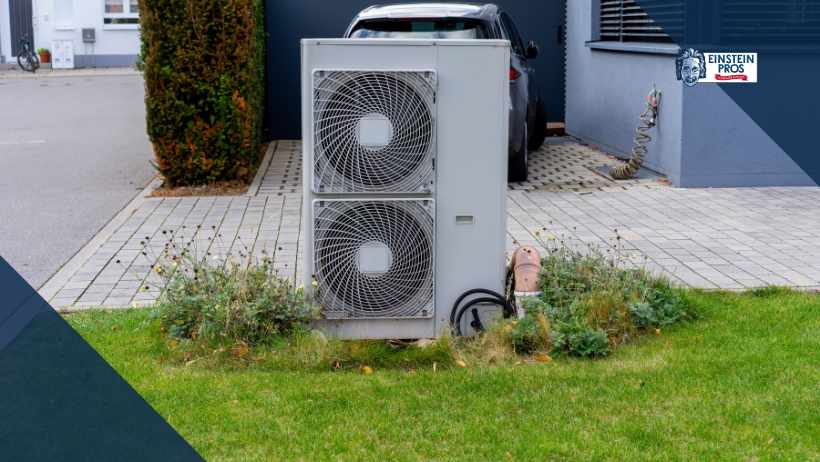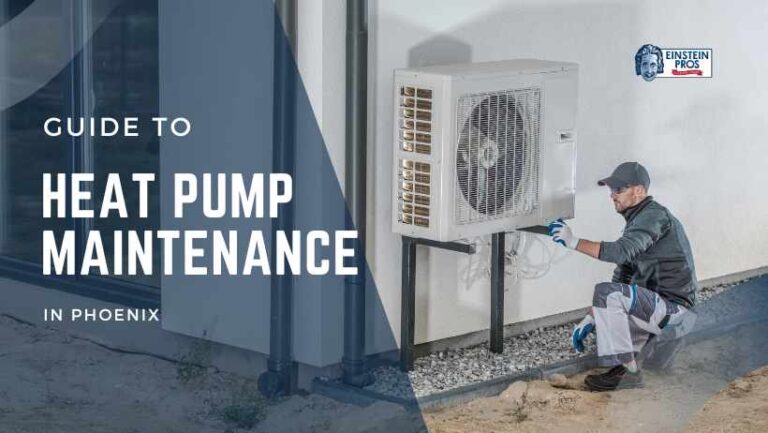Maintaining your heat pump is crucial to ensuring its optimal performance and longevity. Regular heat pump maintenance not only enhances energy efficiency but also prevents potential breakdowns, reducing the need for costly repairs. In this comprehensive guide, we will delve into the various aspects of heat pump maintenance, offering valuable insights into the key factors to consider for proper upkeep.
Importance of Regular Heat Pump Maintenance
Routine maintenance is the cornerstone of a well-functioning heat pump system. Neglecting this essential aspect can lead to decreased efficiency, increased energy consumption, and even premature system failure. To keep your heat pump in top-notch condition, consider the following factors:
Energy Efficiency
Maintaining your heat pump ensures that it operates at peak efficiency, helping you save on energy bills. A well-maintained system requires less energy to deliver the desired heating or cooling, contributing to a more sustainable and cost-effective home environment.
Prolonged Lifespan
Regular heat pump service can significantly extend the lifespan of your heat pump. By addressing minor issues promptly and preventing major breakdowns, you can enjoy the benefits of your system for many years, avoiding the need for premature replacement.
Reduced Repair Costs
Investing in routine heat pump maintenance is a proactive approach that helps identify and address potential problems before they escalate. This can save you from expensive repairs down the road, making regular servicing a cost-effective strategy in the long run.
DIY Heat Pump Maintenance Tips
While some aspects of heat pump maintenance require professional assistance, there are several tasks homeowners can perform to keep their systems in good shape. Incorporating these DIY tips into your maintenance routine can make a significant difference:
Regularly Clean or Replace Air Filters
Clogged air filters can hinder airflow and reduce the efficiency of your heat pump. Check the filters monthly and replace or clean them as needed. This simple task can improve indoor air quality and prevent strain on the system.
Keep Outdoor Units Clear
Ensure that the outdoor unit of your heat pump is free from debris, leaves, and other obstructions. Maintain a clear space around the unit to facilitate proper airflow, allowing the system to operate efficiently.
Monitor Thermostat Settings
Optimal thermostat settings contribute to energy efficiency. Adjust your thermostat based on the season, and consider investing in a programmable thermostat to regulate temperatures automatically, optimizing energy usage.
Inspect and Clean Coils
Both indoor and outdoor coils should be inspected regularly for dirt and debris. Clean the coils as needed to prevent efficiency loss and ensure smooth operation. For more in-depth cleaning, consider hiring a professional HVAC technician.
3. Professional Heat Pump Service
While some maintenance tasks can be handled by homeowners, it’s essential to enlist the expertise of a qualified HVAC technician for more intricate procedures. Professional heat pump service from Einstein Pros ensures thorough inspection and maintenance, addressing critical components that may be beyond the scope of DIY efforts:
Yearly Professional Inspection
Schedule an annual inspection with a qualified HVAC technician to assess your heat pump thoroughly. This includes checking refrigerant levels, inspecting electrical components, and identifying potential issues that could impact performance.
Refrigerant Level Check
Maintaining the correct refrigerant levels is crucial for efficiently operating your heat pump. A professional technician will check and adjust refrigerant levels as needed, preventing issues such as reduced efficiency and compressor damage.
Lubrication of Moving Parts
Proper lubrication of moving parts is vital for reducing friction and preventing wear and tear. A qualified technician will ensure that all moving components, such as the fan and motor, are adequately lubricated to enhance efficiency, extend the lifespan of your heat pump, and avoid unnecessary heat pump services.
Ductwork Inspection and Sealing
Leaky or poorly insulated ductwork can result in energy loss and reduced efficiency. A professional technician will inspect your ductwork for any issues, sealing leaks and ensuring that the system delivers conditioned air effectively throughout your home.
Troubleshooting Common Heat Pump Issues
Despite regular maintenance, heat pumps may encounter issues from time to time. Understanding common problems and their potential solutions can help you address issues promptly and minimize downtime:
Inadequate Heating or Cooling
If your heat pump is not providing sufficient heating or cooling, check the thermostat settings, and ensure that air filters are clean. If the issue persists, it may indicate a more significant problem, requiring professional diagnosis and heat pump repair.
Unusual Noises
Unusual noises such as grinding, squealing, or banging could be indicative of issues with the fan, motor, or other components. Turn off the system immediately and consult with a professional HVAC technician to identify and resolve the problem.
Ice Buildup on Coils
Ice buildup on the coils can impede heat pump operation. Check for blocked airflow, clean or replace filters, and ensure that the outdoor unit is free from obstructions. If the issue persists, contact a technician to assess and address the root cause.

Seasonal Heat Pump Maintenance Checklist
Adapting your maintenance routine to the changing seasons is essential for keeping your heat pump in optimal condition year-round. Consider the following seasonal checklist to address specific needs:
Spring Maintenance
- Clean or replace air filters.
- Inspect and clean coils.
- Check refrigerant levels.
- Schedule a professional inspection.
Summer Maintenance
- Ensure the outdoor unit is free from debris.
- Monitor thermostat settings.
- Lubricate moving parts.
- Verify proper airflow.
Fall Maintenance
- Clean gutters and ensure the outdoor unit remains clear.
- Test the thermostat and heating mode.
- Inspect and seal ductwork.
- Schedule professional maintenance if needed.
Winter Maintenance
- Clear snow and ice from the outdoor unit.
- Check for ice buildup on coils.
- Monitor and adjust thermostat settings.
- Address any unusual noises promptly.
Energy-Efficient Upgrades and Technology Integration
In addition to regular maintenance tasks, consider incorporating energy-efficient upgrades and leveraging cutting-edge technology to enhance the performance of your heat pump system. Stay abreast of advancements in the HVAC industry to explore options that can further optimize energy usage and improve overall efficiency.
Programmable Thermostats and Smart Controls
Investing in a programmable thermostat or smart control system can revolutionize the way you manage your heat pump. These devices allow you to schedule temperature adjustments based on your daily routine, optimizing energy consumption and ensuring that your home remains comfortable when needed while conserving energy during periods of inactivity.
Variable-Speed Technology
Heat pumps equipped with variable-speed technology adjust their operation to meet the specific heating or cooling demands of your home. This not only enhances comfort but also contributes to energy efficiency by preventing the system from running at full capacity when only partial heating or cooling is required.
Heat Pump Zoning Systems
Zoning systems divide your home into distinct areas with individual temperature controls, allowing you to heat or cool only the spaces in use. This targeted approach minimizes energy waste and provides personalized comfort for different areas of your home, further optimizing your heat pump’s efficiency.
Environmental Considerations and Sustainability
As the world increasingly focuses on sustainability, homeowners are seeking eco-friendly alternatives for their heating and cooling needs. Heat pumps are inherently more environmentally friendly than traditional HVAC systems, but there are additional steps you can take to minimize your carbon footprint:
Renewable Energy Integration
Consider integrating renewable energy sources, such as solar panels, to power your heat pump. This not only reduces your reliance on the electrical grid but also aligns with the global shift towards cleaner and more sustainable energy solutions.
Eco-Friendly Refrigerants
Stay informed about advancements in refrigerant technology that offer lower environmental impact. Transitioning to eco-friendly refrigerants can be part of your commitment to reducing greenhouse gas emissions and contributing to a greener future.
Responsible Disposal and Recycling
When it comes time to replace your heat pump, ensure that the old unit is disposed of responsibly. Many components, including metals and refrigerants, can be recycled. Engage with certified disposal services to minimize environmental impact and contribute to a circular economy.
Monitoring and Analytics for Proactive Maintenance
Embrace the power of data by incorporating monitoring and analytics tools into your heat pump maintenance strategy. These technologies provide real-time insights into the performance of your system, enabling proactive measures to address potential issues before they escalate:
Remote Monitoring Systems
Modern heat pump systems often come with remote monitoring capabilities. These systems allow homeowners and HVAC technicians to track performance metrics, receive alerts for potential issues, and even make adjustments remotely. Embracing this technology can lead to quicker response times and more efficient troubleshooting.
Predictive Maintenance Software
Predictive maintenance software utilizes machine learning algorithms to analyze data and predict when components are likely to fail. By identifying issues before they impact performance, this technology helps you schedule timely maintenance, reducing the risk of unexpected breakdowns and minimizing downtime.
Emergency Preparedness and Quick Response
Despite meticulous maintenance, emergencies can still arise. Develop a contingency plan and familiarize yourself with quick response measures to mitigate potential damage and inconvenience during unexpected heat pump failures:
Emergency Shut-Off Procedures
Understand how to safely shut off your heat pump in the event of a malfunction. This knowledge can prevent further damage and provide a temporary solution until professional help arrives.
Contact Information for HVAC Technicians
Keep a list of reliable HVAC technicians, such as Einstein Pros, readily available. Having this information at your fingertips ensures that you can quickly reach out for professional assistance during emergencies, reducing downtime and discomfort.
Temporary Heating and Cooling Solutions
Consider having temporary heating or cooling solutions on hand, such as space heaters or portable fans, to maintain a comfortable indoor environment while awaiting repairs. These temporary measures can be particularly useful during extreme weather conditions.
Cost-Effective Maintenance Strategies
While professional maintenance is crucial, there are also cost-effective strategies to optimize your heat pump’s performance without breaking the bank. Implementing these measures can help you maintain your system’s efficiency while being mindful of your budget:
DIY Air Duct Inspections
Regularly inspecting your air ducts for leaks and sealing them with duct tape or mastic can enhance the efficiency of your heat pump. Leaky ducts contribute to energy loss, and addressing these issues can improve the overall performance of your system.
Regular Coil Cleaning
In addition to professional coil cleaning, homeowners can perform regular visual inspections and light cleaning to prevent the buildup of dirt and debris. This proactive approach reduces the frequency of professional cleanings and helps maintain optimal heat exchange efficiency.
Educate Yourself on Basic Troubleshooting
Empower yourself with basic troubleshooting skills to address minor issues promptly. Understanding how to reset your thermostat, check circuit breakers, and perform simple diagnostics can save time and money, minimizing the need for unnecessary service calls.
Why Heat Pump Maintenance Is Important in Phoenix
Energy Efficiency in High Temperatures
Efficient heat pumps consume less energy, a crucial factor in Phoenix’s scorching summers. Regular maintenance, such as cleaning filters and coils, can optimize your heat pump’s performance, helping it cool your home effectively without excessive energy consumption.
Prevention of Costly Repairs
The dry and dusty conditions in Phoenix can take a toll on HVAC systems. Regular heat pump service by an HVAC technician helps identify and address potential issues early, preventing major breakdowns that could result in costly repairs. Proactive maintenance is a cost-effective strategy in the long run.
Ensuring Consistent Comfort
In a city where temperatures can soar above 100°F, a malfunctioning heat pump is a significant inconvenience. Regular maintenance ensures that your heat pump operates consistently, providing the cooling or heating you need, regardless of the outside conditions.
Conclusion
Mastering heat pump maintenance in Phoenix requires a combination of DIY efforts and professional service from Einstein Pros tailored to the unique challenges presented by the desert climate. By incorporating these tips into your maintenance routine, you can ensure that your heat pump operates efficiently, providing consistent comfort and reliability throughout the extreme temperatures of the Phoenix region.
